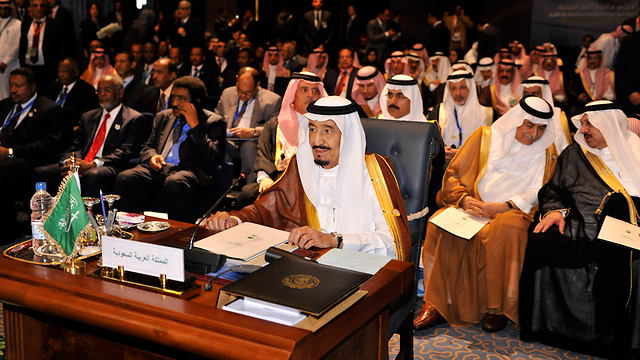
Israel must rethink its policies in the Middle East
Op-ed: The pragmatic Arab regimes are in need of a regional partnership focused on curbing radical Islam just as much as Israel is.
The basic diplomatic outlooks of Israeli governments in the past, in the Palestinian context as well, are not necessarily relevant or valid today. For example, the bilateral perception, which sanctified direct negotiations (in the Palestinian context and in general) as the only way that could lead to progress or to results, appears detached from reality today.
In his latest book, "World Order," Dr. Henry Kissinger focuses on the Palestinian weakness, from which he derives the need for a broader framework for the peace process, both in order to receive the active support of other governments in the region, and in view of the fact that the Israeli-Palestinian issue is only one element in the regional order.
In the past, Israel many times opposed peace processes which digressed from the bilateral context in light of the fear that a united Arab voice would intensify the pressure on Israel and make it more difficult to reach results.

The developments in the region, led by Iran's pursuit of regional dominance and a nuclear weapon, as well as by the growth of the Islamic State, create a wide overlap of interests between Israel and the pragmatic Arab regimes, including Saudi Arabia, Egypt and Jordan. These regimes are in need of a regional partnership united around curbing the radical Islam in the region just as much as Israel is.
Meanwhile, we must also rethink the spectrum of options for solving the Israeli-Palestinian conflict. The fixation of Oslo and the perception of two states in the defined and delimited area between the Mediterranean Sea and the Jordan River have led us time and again to a dead end. And that's not the only thing: There is more than a doubt that such a solution can provide security for the Jewish state and a viable state for the Palestinians.
Major-General (res.) Giora Eiland once suggested changing things around and proposing a daring idea of a land swap in the regional context, which includes other countries like Egypt and Jordan. There is room to look into the possibility of advancing this idea based on shared interests. Such a model includes advantages for all sides, and it prevents damage to the settlement enterprise in Judea and Samaria.
But while there is no guarantee that it would be right to make such a "plunge" straight into the permanent agreement, such a regional partnership with the pragmatic regimes could also advance more modest but important targets. One of these targets is rebuilding the Gaza Strip, which reflects a shared interest and has the power to postpone the next conflict.
Gideon Sa'ar served as education minister and interior minister in Israel's two previous governments and is currently a distinguished senior fellow at the Institution for National Security Studies (INSS).










